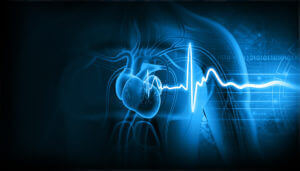
Heart diseases are a leading cause of death in both men and women in America and worldwide. According to an estimate, approximately 70,000 Americans have a heart attack each year. This sheer prevalence of heart diseases is enough to understand the importance of seeing a heart specialist – a cardiologist.
Let’s discuss the importance of a cardiologist in maintaining the health of your heart, the best time to consult them, and where you can find the best cardiologist in New Jersey.
Cardiologist
A cardiologist is a physician who is an expert in diagnosing and treating heart and blood vessel problems (also referred to as cardiovascular diseases). A cardiologist can also help you prevent a large number of heart and blood vessel problems from occurring.
In the United States, a cardiologist completes 4 years of medical school, 3 years of training in internal medicine, and then specialization in cardiology (a branch of internal medicine) for 3 years.
After 10 years of education and training, a cardiologist takes and passes an American Board of Internal Medicine exam. They keep on learning the new advances in cardiology even after getting a board certificate.
When to Get One?
Typically, your primary care doctor checks your heart and blood vessels’ health. If there is a problem, the primary care doctor refers you to a cardiologist.
You can also see a cardiologist when you notice the following symptoms:
- Shortness of Breath – The inability to catch your breath can be a sign of a heart problem and should be addressed by a cardiologist immediately. In case of severe shortness of breath, don’t wait to see a cardiologist; instead call 911 right away.
- Chest Pain – Otherwise known as angina, chest pain occurs when your heart is not getting enough blood required to fulfill its needs. Angina pain can sometimes be diverted to your arm, jaw, and shoulder. If you notice angina symptoms along with tightness in the chest and very low heart rate, call 911 right away.
- Dizziness – While dizziness (swirling or spinning sensation) can point to many conditions, it can also be a sign of unstable blood pressure and heart disease when accompanied by other symptoms.
- Fainting Spells – Fainting spells or sudden loss of consciousness occur when blood flow towards the brain is compromised due to heart disease, panic attacks, anemia, etc.
- Fluttering Sensation in Chest – This is a change in heart rhythm. Heart flutter is experienced as palpitation (fast heartbeat), erratic thumping in the chest, racing heart, or heart skipping a beat.
What do They Treat?
A heart specialist can diagnose and treat a full spectrum of diseases affecting the heart and blood vessels. Some of those are:
- Atherosclerosis
- Angina
- Heart failure
- Heart attack
- Blood clot
- Sudden cardiac arrest
- Atrial fibrillation
- Endocarditis
- Cardiogenic shock
- Cardiomyopathy
- Myocarditis
- Stroke
- Heart valve problems
- Problems with the aorta, such as stenosis and aneurysm
- Problems with the arteries, such as coronary artery disease, peripheral artery disease, and renal artery disease
Cardiologists perform several tests to diagnose these problems. Some of these tests are:
- Chest X-ray
- Cardiac MRI
- Stress test
- Electrocardiogram (EKG)
- Coronary angiogram
- Echocardiogram
- Event Monitor
- Holter Monitor
Cardiologist in New Jersey
If you or your loved one have a heart or blood vessel problem, trust our exceptionally skilled cardiologists at Hudson MD Group with your heart. Our cardiologists provide comprehensive, individualized, and compassionate care for heart patients. They can also perform various diagnostic tests to save you time, money, and the hassle of looking for a diagnostic facility.
If you want to make an appointment with our cardiologist, call our staff today at (973) 705-4914 or use our convenient online form.


